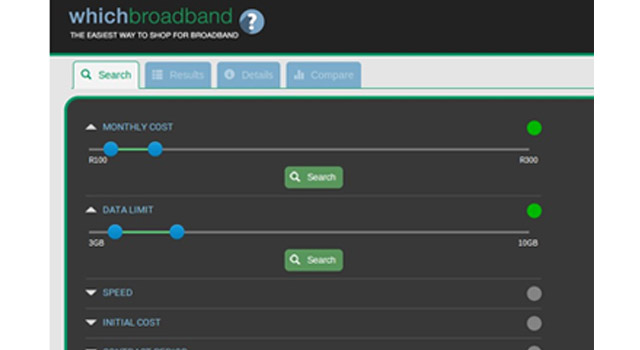
South African start-up WhichBroadband will go live on Monday, showcasing consumers’ broadband choices in an effort to take the complexity out of making a buying decision.
The concept was developed as early as 2007 when Clinton Bemont, a metallurgy lecturer at the University of Kwazulu-Natal, was looking for a comparison of all broadband services offered in South Africa.
He realised there was no easy way to compare the fixed-line and mobile broadband options available. Existing consumer broadband websites and forums do not provide adequate information to allow consumers to make informed choices.
“The idea is to give users the opportunity to find any information on any broadband product in South Africa, so we created a one-stop shop for all information,” says Bemont, who is one of the website’s co-founders.
“When I came up with the idea, broadband packages were more confusing than what they are now, but it’s still not easy to find the information you need to make an educated decision.”
The data on the website will provide consumers with a detailed breakdown of each product, including its price and how it’s structured.
WhichBroadband is self-funded and all development work has been done by its founders.
The website will allow consumers to apply a number of search filters to determine which broadband offerings suit their needs or pocket the best. These criteria include monthly costs, bandwidth speeds, shaping and upfront costs (such as a modem or other equipment that has to be purchased).

Bemont says they’ll be able to compare products between any of South Africa’s Internet service providers, and the website will highlight the best performing feature in each category, giving users a visual indication of which products would have the best features for them.
There are no plans for a mobile application yet, especially since the website was developed using responsive design and adjusts the layout based on screen size.
The website intends making money by targeting Internet service providers for advertising. It also plans to provide back-end access to ISPs, giving them the opportunity to keep their product information and content up to date. — (c) 2014 NewsCentral Media

